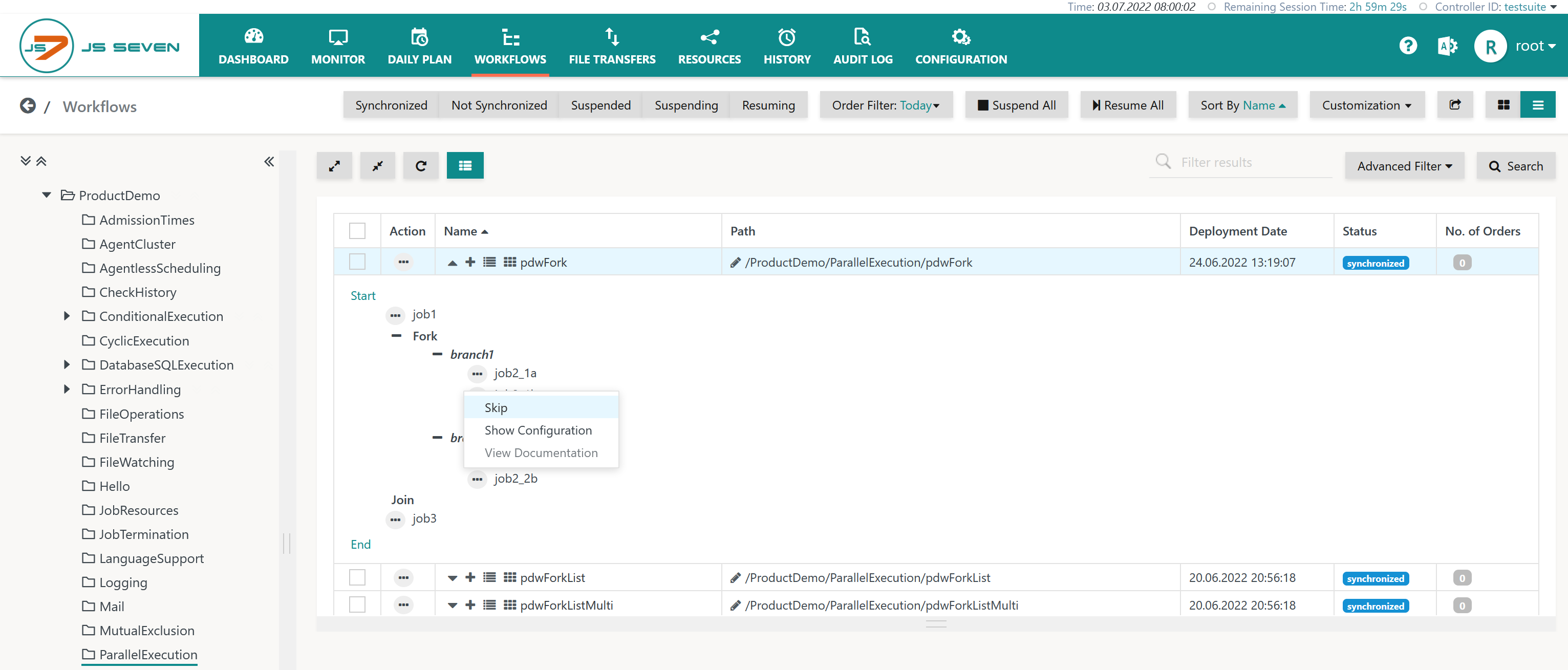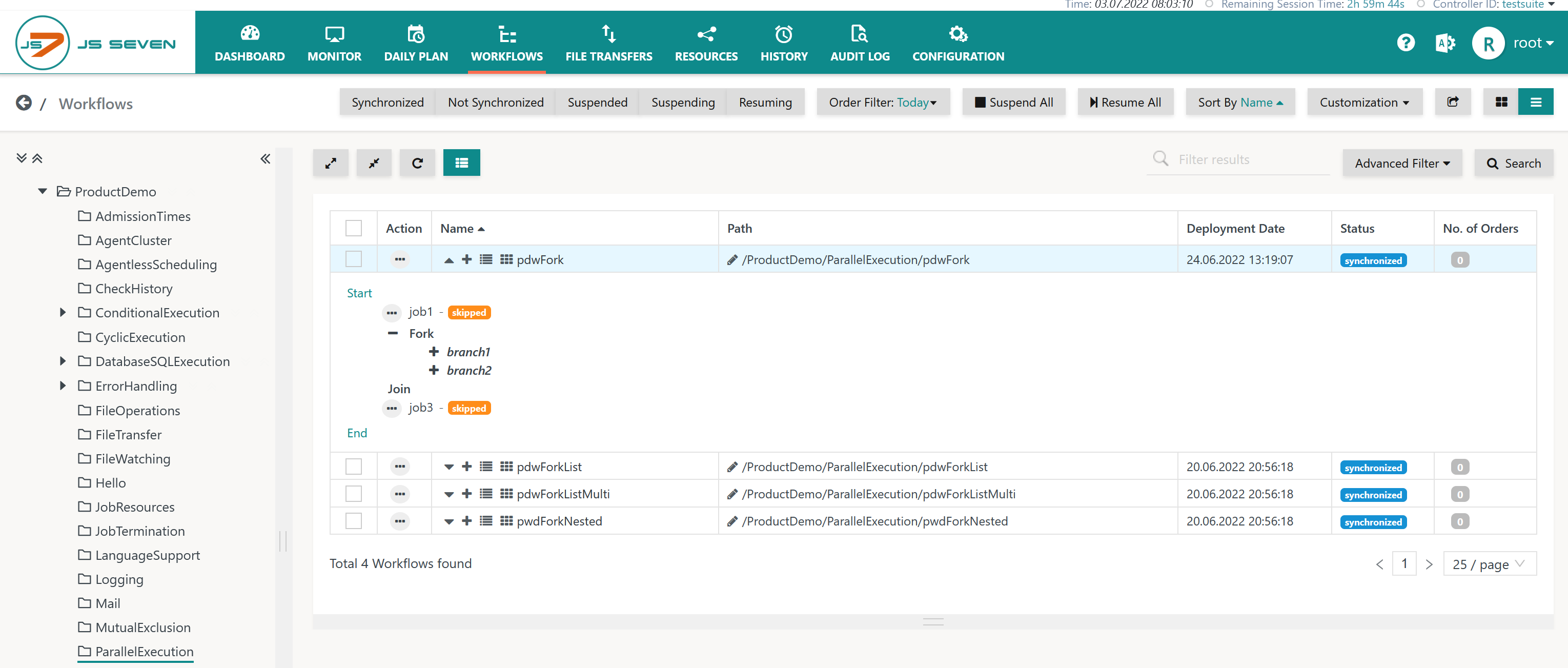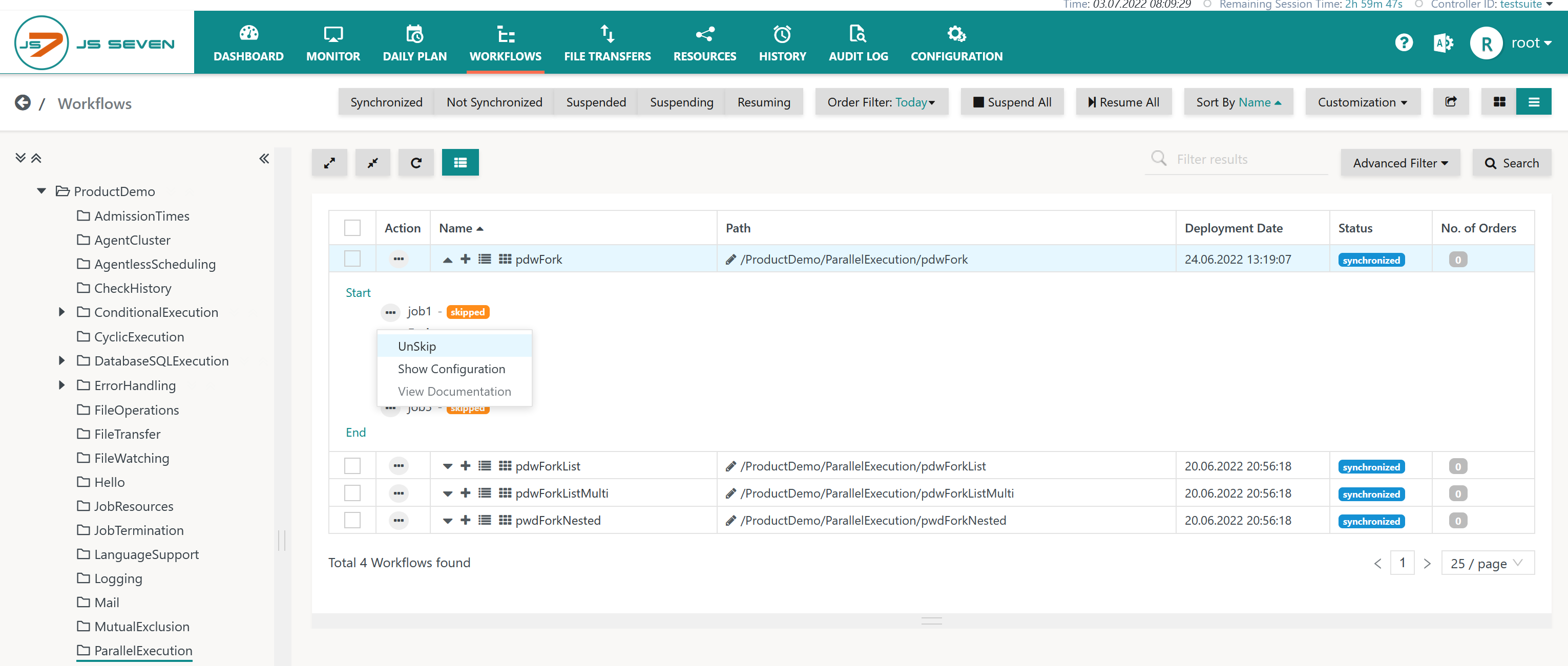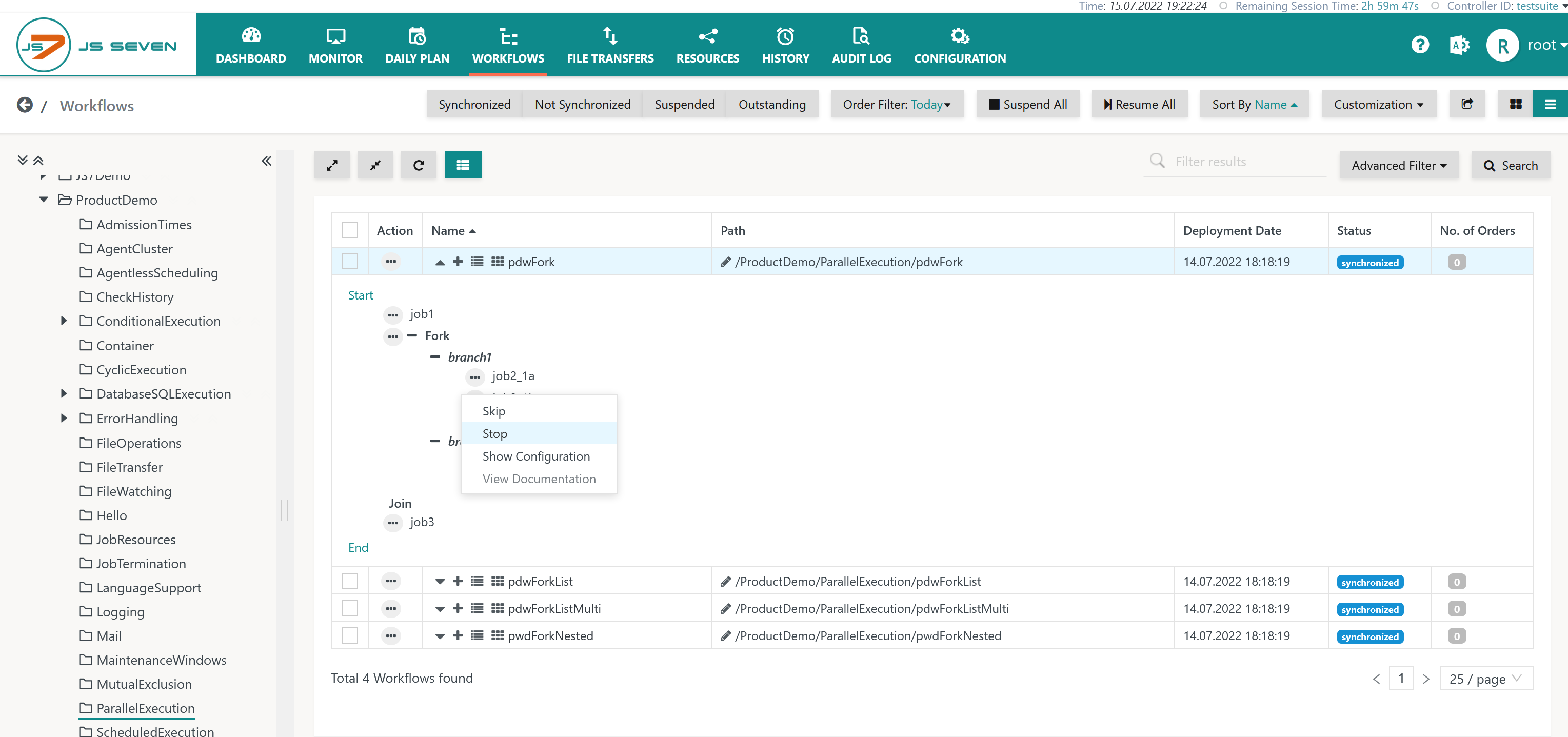Introduction
JS7 - Workflows implement jobs and dependencies for workload automation. Orders are triggers that cause the execution of workflows.
- The Configuration View provides a graphical design view from the JS7 - Workflow Editor.
- The Workflows View provides a tactical view which can be used to monitor the processing of orders with workflows in near real-time and perform interventions if required.
JS7 allows jobs to be skipped and stopped on-the-fly.
FEATURE AVAILABILITY STARTING FROM RELEASE 2.4.0
Status Operations on Jobs
The following status operations are available for jobs in a workflow:
- Skip job: The job will not be executed, instead an order continues execution with the next instruction after the skipped job.
- Stop job: The order will be put to the suspended state if it meets a stopped job. Users can resume suspended orders.
- An order can be resumed from the same position, from a previous or later position in the workflow, depending on the workflow design. For a stopped job, resuming the order will force the job to start. When resuming orders, users are free to chose the same or a different job from which the order will be resumed.
- Orders are not automatically resumed when a job is unstopped. Users can find the category of suspended orders in the Dashboard view. This displays a list of related orders and workflows. Bulk operations can be carried out, allowing a larger number of orders to be resumed at the same time.
- The Workflows view provides the Search option to look up workflows that include skipped or stopped jobs.
Status operations on jobs can affect a number of Agents that are assigned the jobs in question. If one or more Agents assigned to jobs in a workflow are not accessible to the Controller then the status operation is considered to be outstanding.
- The Controller will forward the status operation to the relevant Agents when they become accessible.
- The workflow remains in an outstanding status indicating that not all Agents have confirmed the status operation.
FEATURE AVAILABILITY STARTING FROM RELEASE 2.4.0
Skipping Jobs
A job's action menu includes the Skip operation:
- A skipped job is not considered for job execution and no returns variables are created from the job.
- The operation to skip execution applies to any available version of the workflow that holds the skipped job.
The status of skipped jobs is displayed like this:
The skipping of a job can be reverted by using the Unskip operation, which is available from the job's action menu:
Stopping Jobs
The Stop operation is available in the job's action menu:
- A stopped job suspends any incoming order to create a breakpoint in the workflow.
- Users can resume a suspended order from the same position or other position in the workflow.
- Resuming from the same position forces the job to be executed.
- The operation to stop a job applies to the version of the workflow for which the stop operation is performed.
The status of stopped jobs is displayed like this:
The stop operation can be reverted by using the Unstop operation, which is available from the job's action menu:
Precedence of Status Operations on Workflows and Jobs
Jobs in a workflow can be stopped and skipped at the same time. In addition the workflow can be suspended.
The above explanations suggest the following precedence of operations in descending order:
- A job being stopped is assigned the highest precedence.
- Should a workflow be suspended then this includes that orders can complete the current instruction in the workflow.
- If the current instruction in a workflow is stopped then the order will be suspended before the workflow is suspended.
- If a workflow is suspended then orders will be frozen once they have completed processing of the current instruction.
- If the order specifying an end position has been added then the order will leave the workflow once the end position is reached.
- A skipped job has the lowest precedence compared to stopped jobs and suspended workflows.
Further Resources
- JS7 - Workflows - Status Operations on Workflows
- JS7 - Workflows - Status Operations on Instructions
- JS7 - Workflows - Status Operations on Orders
- JS7 - Workflows - Start Positions and End Positions of Orders





